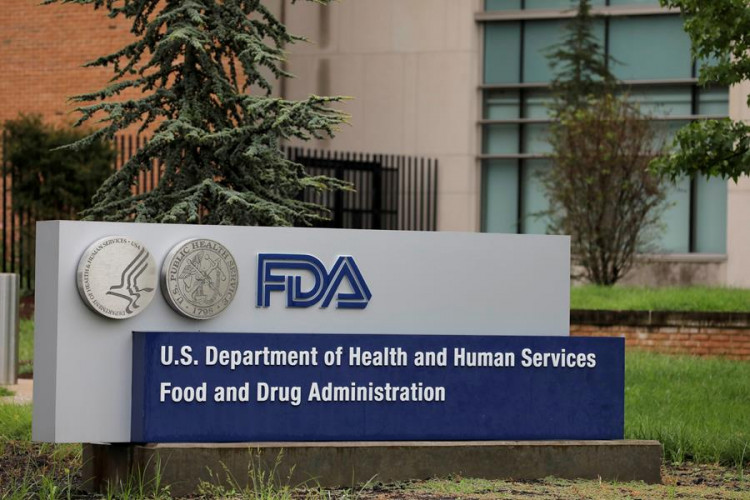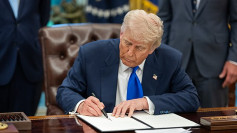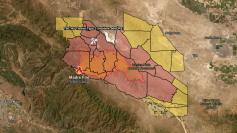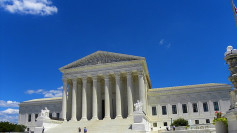The U.S. Food and Drug Administration (FDA) has declined to approve a groundbreaking MDMA-based therapy for post-traumatic stress disorder (PTSD), marking a significant setback for the treatment's proponents. The decision, announced on Friday by Lykos Therapeutics, the drug's developer, came after the FDA concluded that the data submitted was insufficient to support the therapy's approval. This move aligns with concerns raised by an FDA expert panel in June, which questioned the integrity and design of the clinical trials.
MDMA, commonly known as ecstasy or molly, has long been viewed by some researchers and mental health advocates as a promising treatment for various psychological disorders, including PTSD. However, its illicit history and classification as a Schedule I drug, denoting it as a substance with no currently accepted medical use and a high potential for abuse, have posed significant hurdles for its approval in medical settings.
Lykos Therapeutics had presented data from two late-stage clinical trials involving more than 190 patients. The treatment, which combined MDMA with sessions of talk therapy, reportedly showed a significant reduction in PTSD symptoms compared to a placebo. Despite these promising results, the FDA cited several concerns, including the lack of documentation regarding potential drug abuse by trial participants, issues with the trial's design, and the need for more robust evidence to support the therapy's safety and efficacy.
"The FDA request for another study is deeply disappointing," said Amy Emerson, CEO of Lykos Therapeutics. "While conducting another phase 3 study would take several years, we still maintain that many of the requests that had been previously discussed with the FDA can be addressed with existing data, post-approval requirements, or through reference to the scientific literature."
The FDA's decision reflects the agency's cautious approach to approving novel therapies, particularly those involving psychoactive substances. The rejection was also influenced by the recommendations of the FDA's advisory committee, which had raised critical doubts about the trials' efficacy data and safety assessments. The committee had highlighted the difficulty in determining how much of the observed benefits were due to the MDMA itself versus the accompanying talk therapy-a component not regulated by the FDA.
Reports from the trials indicated that participants experienced significant increases in both blood pressure and pulse during the sessions, raising concerns about the drug's cardiovascular safety. Additionally, the FDA noted that the research had not adequately assessed the potential for abuse, a key consideration given MDMA's history as a recreational drug. The FDA's decision underscores the importance of rigorous, comprehensive data in the approval process for treatments that could significantly impact public health.
Public Citizen, a nonprofit consumer advocacy group that testified against the approval, praised the FDA's decision. Dr. Robert Steinbrook, director of Public Citizen's Health Research Group, stated, "Although psychedelic drugs are a promising approach to mental health care, FDA approval of a new drug should always be based on rigorous evidence of safety and effectiveness."
Despite the setback, Lykos Therapeutics remains committed to advancing its MDMA-based therapy. The company plans to request a meeting with the FDA to discuss the agency's recommendations and explore the possibility of resubmitting the application after addressing the concerns raised. "Lykos will work diligently in the coming months to address FDA's concerns and to take advantage of agency processes to resolve scientific disagreements," the company said in a statement.
The FDA's decision has also sparked disappointment among some veterans groups, who have been advocating for alternative treatments for PTSD, a condition that affects approximately 13 million Americans. Martin Steele, president of the Veteran Mental Health Leadership Coalition, and Brett Waters, executive director of Reason for Hope, expressed their frustration, stating, "It is hard to see how the FDA's decision can be justified when it has plenty of tools to ensure a slow, cautious roll-out of this novel treatment... Instead, veterans will continue to be forced to leave the country or seek underground providers for MDMA-assisted therapy, which is a tragic and unconscionable outcome."
The controversy surrounding MDMA as a treatment for PTSD highlights the broader debate over the use of psychedelic drugs in mental health care. While some experts see potential in these substances, others stress the need for caution and comprehensive evidence before they can be integrated into mainstream medical practice. The FDA's decision, while disappointing to some, serves as a reminder of the rigorous standards that must be met to ensure the safety and efficacy of new treatments.





